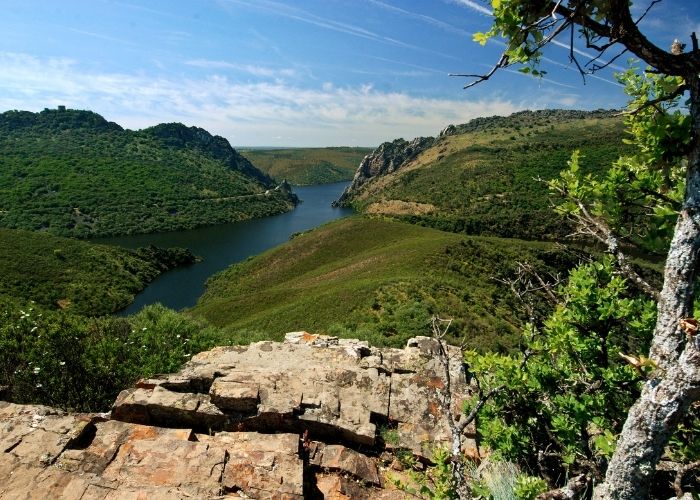Spain not only leads the European Union but is also a worldwide leader in the area of protected natural areas, according to the 2020 Yearbook of the EUROPARC-Spain Network presented last week. Within the EU, Spain’s protected natural areas are twice the size of those in France, the number two.
Spain is the country contributing the most land area to the EU’s Natura 2000 network. Furthermore, this is currently the largest system of protected areas in the world. ‘The Yearbook 2020’ was produced as part of the project ‘Contribution of protected areas to climate change adaptation, human health and environmental education for sustainability’. This was developed by the González Bernáldez Foundation and EUROPARC-Spain. And has support from the Ministry for Ecological Transition and the Demographic Challenge.
The purpose of the publication
The publication has several purposes. Firstly, to raise public awareness of the importance of conserving and caring for these areas. But also to promote ecotourism, thus preserving biodiversity and contributing to local development.
The EU Biodiversity Strategy to 2030 aims to effectively protect at least 30% of the EU countries’ water and land areas. And also to provide for the strict protection of 10% of the sites and aims to improve connectivity.
According to the 2020 Yearbook, Spain is in a ‘good position’ to achieve these objectives. Moreover, it currently ranks first worldwide in biosphere reserves with 53 sites; second in geoparks, areas designated by UNESCO as having outstanding geological heritage, with 15 sites; and third in wetlands of international importance.
To promote the knowledge of protected areas, the Global Nature Foundation, EUROPARC-Spain and the Association for Ecotourism in Spain, during the presentation of the Yearbook, also presented the campaign ‘Our Protected Areas’. This campaign has several goals. Firstly, to ‘revalue the work of caring for and maintaining natural areas. Secondly, to recognise the importance to society as a whole of the natural and cultural heritage of these areas. As this is essential for biodiversity and climate change mitigation’. And, finally, to portray the daily lives of those who live and work in these areas, while contributing to the socio-economic development of their territories.
Crucial importance of national parks
EUROPARC-Spain’s Technical Director Marta Múgica believes that in these times of systemic crisis it is ‘crucial’ to recognise the role that the 16 National Parks, the more than 150 natural parks and some 1,800 legally protected areas play in preserving biodiversity and for the well-being of society as a whole’. ‘
There is increasing evidence of the contribution of protected natural areas to people’s health, the fight against climate change and the promotion of environmental education for sustainability. It is therefore essential to ensure their adaptive and efficient management, with material, economic and human resources adapted to the new challenges’, Múgica argued.
Society does not see the need
She therefore regrets that, despite these figures, Spanish public opinion does not fully appreciate the importance of these areas. And, consequently, is not proud of Spain’s No 1 position in the world. She says, therefore, society does not see the need to invest in the care and maintenance of natural areas. While the role of the areas is so important, experts say.
The importance of responsible ecotourism is growing
Amanda Guzmán, manager of the Association of Ecotourism in Spain, stressed that visits to these areas have steadily increased. Therefore, making it all the more necessary to promote responsible tourism. A tourism that contributes to the preservation of the heritage, generates local socio-economic development. And, at the same time, makes it possible to offer special and quality experiences. So that protected areas continue to exist as they were intended to.
Protected areas are indispensable
Finally, Global Nature Foundation Coordinator Ignacio Jiménez emphasised that protected natural areas are ‘indispensable’ within the environmental, social and economic policies of any country. These areas act as essential instruments for the preservation of our natural and cultural heritage, provide numerous employment and business opportunities, generate space for recreation and entertainment, promote our physical and mental health (which has been especially demonstrated in times of pandemics), play a crucial role in the production, purification and storage of water, reduce the effects of climate change, and serve as scientific and educational spaces of the first order,’ Jiménez said.


